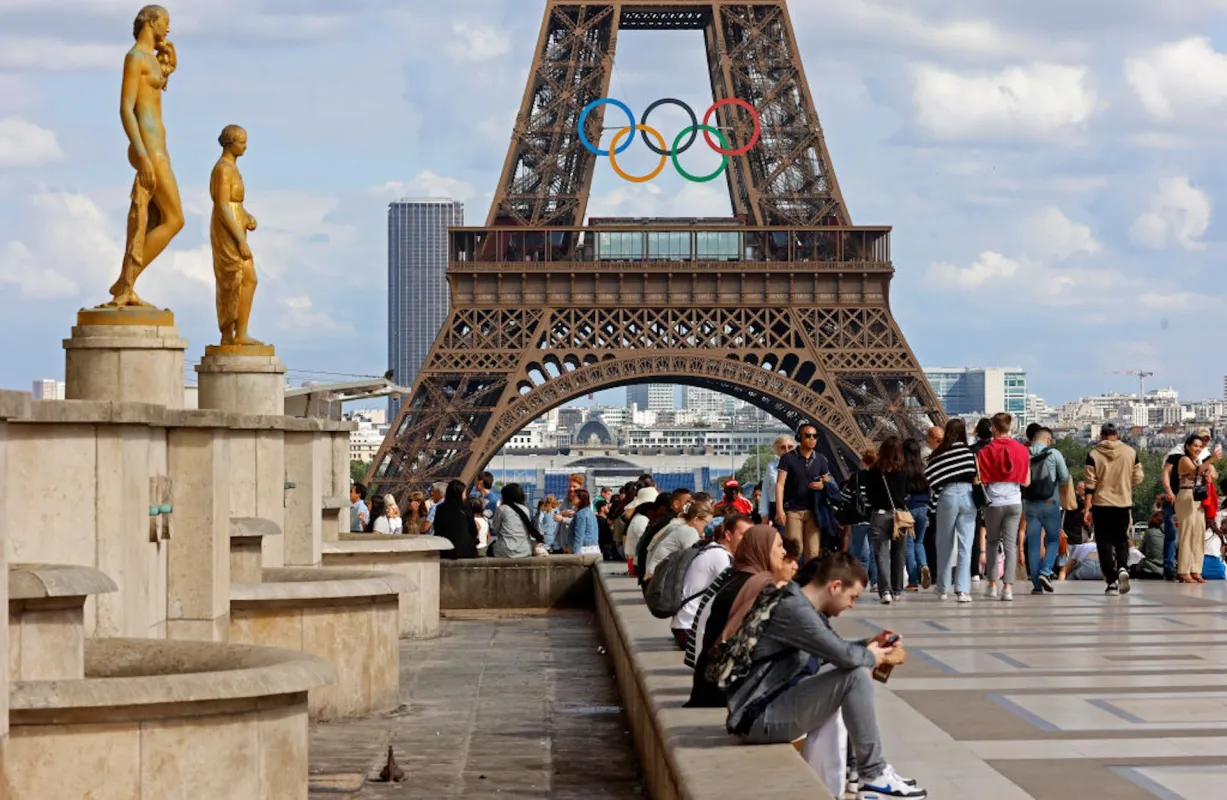This isn’t the first time the Olympics have faced the risk of a viral outbreak.
The 2024 Paris Olympics are just under a month away, but the millions of people attending the highly anticipated event could be at risk of contracting a dangerous illness.
What’s happening?
As explained by The Conversation, the Paris Olympics can potentially become a super-spreader event for dengue fever. Reported cases of dengue fever in September 2023 raised alarms because they marked the “most northerly outbreak ever recorded” of the mosquito-borne illness. The people who contracted it also hadn’t traveled recently, suggesting that mosquitoes carrying the disease continue to make their way into Northern Europe.
Rising global temperatures and increased rainfall create ideal conditions for mosquitoes to breed, which can lead to outbreaks in places that historically haven’t had to deal with these diseases.
The Conversation pointed out that there were 5.2 million reported cases of dengue worldwide in 2016, but just six months into 2024 there are already 7.6 million reported cases, and that number is growing.
For the Olympics to become a super-spreader event, “there needs to be enough mosquitoes, enough susceptible and already-infected people, enough time and enough mosquito bites,” according to The Conversation.
Why is this important?
The Olympics are expected to bring over 10 million people to Paris, including athletes, fans, officials, and tourists. Travelers will flock to the City of Love from over 200 countries, many of which are already dealing with spikes in dengue fever this year.
According to the Centers for Disease Control and Prevention (CDC), most people infected with dengue experience mild symptoms such as nausea, rashes, or body aches. However, severe dengue “can be life-threatening within a few hours and often requires care at a hospital.”
The Conversation stated that dengue isn’t caught directly from another human, but only through the bite of an infected mosquito. People with dengue could be asymptomatic and unknowingly spread the virus while they’re at the Olympics or when they return home if they are bitten by a mosquito, which could then carry the disease and transmit it to someone else.
This isn’t the first time the Olympics have faced the risk of a viral outbreak. The 2016 Olympics in Rio de Janeiro, Brazil, were nearly postponed due to concerns about Zika, another mosquito-borne illness.
The Tokyo Olympics were postponed for a year to 2021 due to fears over COVID-19, and they were only conducted under strict regulations to limit the spread of the virus. While there were few reported cases of COVID-19 in the Olympic bubble, there was a rise in infections among the general population, per The BMJ.
What’s being done about this?
The Conversation noted that the French government is aware of the risk of dengue at the Olympics. There are hundreds of sites in Paris being checked regularly for the presence of mosquitoes that carry the disease.
Taking preventive measures, like using mosquito repellent and ensuring there are no standing water sources where mosquitoes can breed can help reduce the risk of contracting dengue. Reducing pollution can also help slow down the warming of the planet and make some areas less friendly to mosquitoes and disease-carrying pests.
